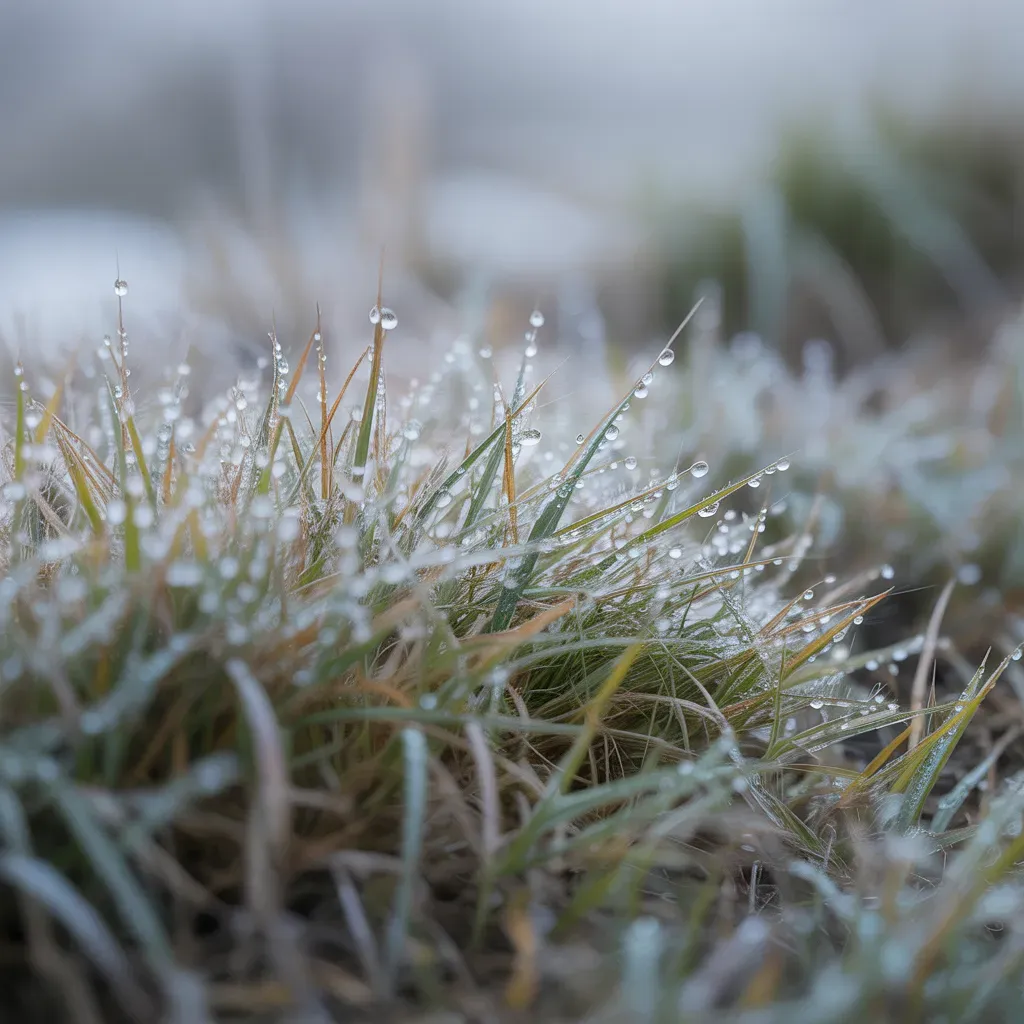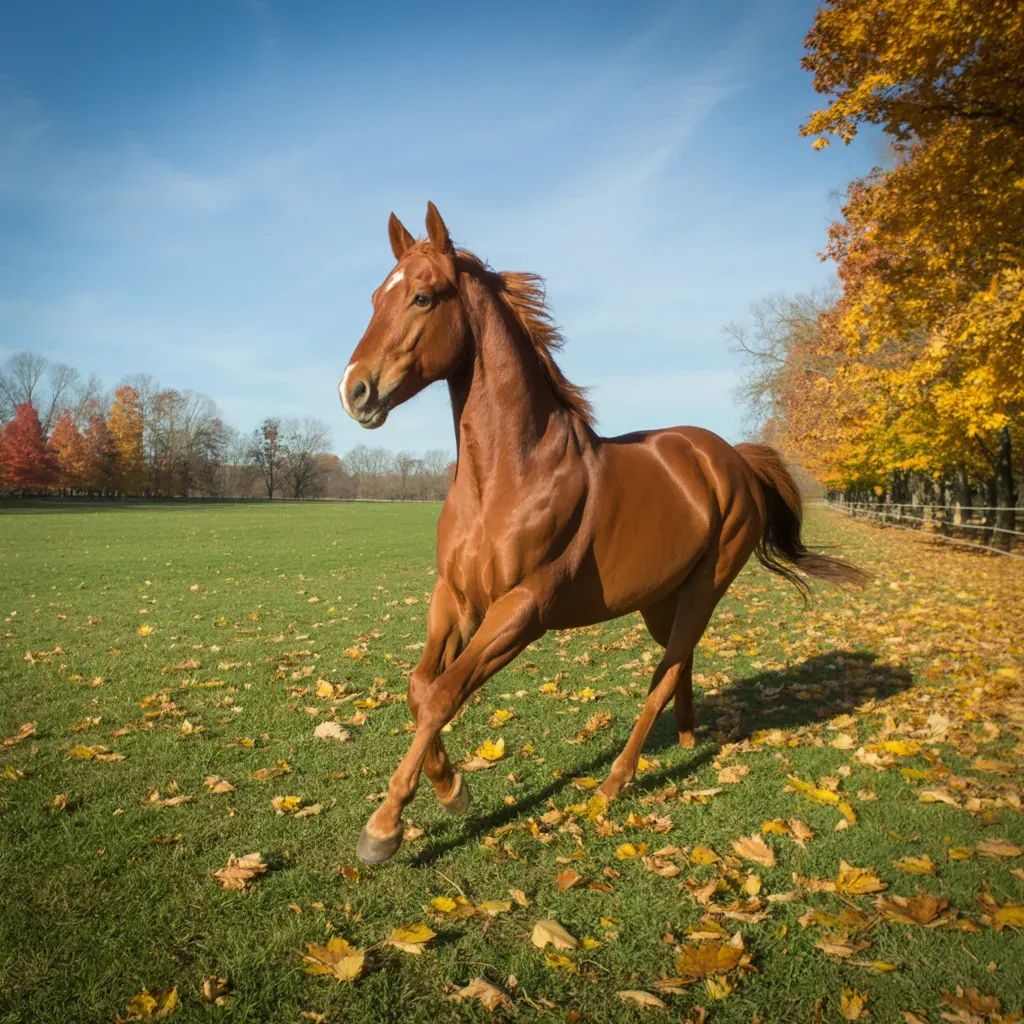The Hidden Root of Spring Allergies & Histamine Chaos? KPU
Why your horse’s immune system is in overdrive - and how to restore balance naturally
Spring is just a few weeks away, and nature is already waking up – the tree buds are already forming, which means the season of renewal is on its way, and the birds are singing in anticipation! But for many horses, this time of year also brings an onslaught of itching, congestion, and respiratory distress. While pollen is usually blamed, a deeper underlying issue is at play - histamine intolerance.
f you follow our blogs you'll have seen I've blogged a couple of times on this as new insights come to light. And as with so many equine health challenges, there's always a root cause. In this case it leads us straight back to hindgut health, its connection to liver function, and the multi-metabolic detoxification disorder known as KPU (Cryptopyrroluria).
What is histamine and why does it matter?
Histamine is a natural compound produced by the immune system, acting as a chemical messenger involved in immune responses. In balance, it plays an essential role in your horse’s body. But when histamine levels spiral out of control, trouble begins.
Histamine is stored in mast cells, which line the gut, respiratory system, and skin. When these cells detect a perceived threat - like allergens, stress, or gut imbalances - they release histamine, triggering classic allergy symptoms such as hives, nasal congestion, itching, and digestive discomfort. But why do some horses react so intensely while others remain unaffected? The answer lies in KPU - the missing link when it comes to pollen allergies.
Horses struggling with pollen allergies, chronic skin issues, persistent gut disturbances, or unexplained inflammation, are often unknowingly dealing with KPU. This complex metabolic disorder disrupts nutrient absorption and detoxification pathways, leading to widespread dysfunction, including an inability to regulate histamine properly.
How - and
why
- does KPU affect histamine regulation?
- Vitamin B6 Deficiency (P5P Disruption): A healthy, functioning, hindgut microbiome produces numerous beneficial byproducts which keep our horses thriving, and one of these is the vital activated form of vitamin B6 (Pyridoxal-5-Phosphate, aka P5P). P5P is critical for the liver's detoxification function - without it, KPU horses' hindgut dysbiosis disrupts P5P production, impairing the liver’s ability to break down histamine.
- Detoxification dysfunction: The loss of P5P production means the liver’s natural ability to biotransform toxins and eliminate waste is now affected. And when toxins build up, the immune system stays in a heightened state, making the horse hypersensitive to allergens and environmental triggers.
- Trace Mineral Deficiencies: KPU horses often show deficiencies in zinc, manganese, selenium, and sulphur - key minerals involved in enzyme function and immune regulation. Zinc, in particular, plays a vital role in stabilising mast cells to prevent excessive histamine release.
The result? A horse whose immune system is overwhelmed, releasing excess histamine in response to otherwise harmless stimuli, leading to the persistent cycle of seasonal allergies and inflammatory responses.
The histamine overload connection: allergies, gut health, and inflammation
Histamine intolerance isn’t just about exposure to pollen - it’s a systemic issue rooted in gut and metabolic dysfunction. When the gut is inflamed due to significant hindgut dysbiosis - which, in the case of KPU horses, often starts from birth - and is then continually disrupted by processed feeds, stress, and antibiotic use, histamine breakdown slows. This leads to a buildup of histamine from food, gut bacteria, and environmental sources, accumulating faster than the body can clear it.
Common symptoms of histamine intolerance in horses with KPU
- Respiratory issues: Nasal discharge, wheezing, heaves, persistent coughing
- Skin reactions: Hives, itching, sweet itch, mud fever, cellulitis
- Digestive upset: Loose droppings, bloating, faecal water syndrome, acrid aroma
- Behavioural changes: Increased anxiety, spookiness, irritability
- Tendon, ligament, and muscle issues: Swelling, unexplained injuries, stiffness that improves with long warm-ups
Horses affected by KPU often display multiple symptoms concurrently, as their immune system and metabolism struggle to maintain balance.
Managing histamine intolerance naturally
Histamine intolerance isn’t a disease but rather a symptom of deeper disturbed metabolic dysfunction. Addressing the root cause - gut dysbiosis and liver dysfunction - can help restore balance.
1. Heal the gut
The first step is stabilising and restoring the hindgut microbiome to encourage the production of P5P and proper liver detoxification.
- Feed a high-fibre, species-appropriate diet - stemmy grass hay 24/7 to support natural hindgut fermentation.
- Remove gut disruptors - ditch high-starch, bulk filler feeds and alfalfa.
- Use prebiotic-rich roughage - our WildFed Prebiotics blend helps rebuild gut flora.
- Feed toxin-binders - Spirulina supports deacidification and liver detox pathways.
2. Reduce high-histamine feeds
Some feeds naturally contain more histamine than others, so limit:
- Fermented feeds (haylage)
- Processed bulk-filler feeds
- Pea proteins and alfalfa
- Fish-based supplements
- Yeasts
3. Support natural mast cell stabilisation
Mast cells release histamine in response to stress and allergens. Certain herbs can help regulate their activity:
🌿 Nettle - natural antihistamine
🌿 Chamomile - calms mast cells and soothes gut inflammation
🌿 Quercetin-rich herbs - natural mast cell stabilisers, i.e. fennel, oregano, ginkgo, liquorice
4. Reduce Stress
Chronic stress increases histamine release and immune overactivity. Managing environmental stressors can significantly improve histamine tolerance.
- Ensure adlib hay to prevent stress-induced feed restrictions and gastric ulcers.
- Minimise stable confinement - turnout reduces stress, allowing a horse to express their natural behaviours.
- ·Use calming herbs like chamomile or valerian for anxious horses.
5. Regenerate liver detox pathways
Since KPU compromises the liver’s ability to process histamine, supporting liver function is crucial:
- Feed extra zinc (found in our mineral balancers), organic sulphur (MSM), and salt to replenish KPU-depleted trace elements.
- Use targeted liver support with LKLCARE to aid Phase 1 & 2 detoxification.
- Avoid unnecessary pharmaceuticals - many drugs require proper liver function to metabolise, which can worsen histamine-related symptoms in KPU horses.
For example, inhalers are steroids, with their purpose being to imitate the adrenal hormones, in this case the stress hormone cortisol, and specifically cortisol’s role in the fight/flight response. This may sound bonkers to any horse carer - I mean, why would we want to intentionally put our horse’s hormones into a continual stressed state of fight/flight? Well, here’s the thinking behind it.
When there’s a fight/flight reaction, the cortisol hormone tells the bronchial passageway to dilate (open wider), while the blood flows to the muscles to prepare them for the fight or flight, and to the brain in order to stay focused on the perceived ‘threat’. The pupils also dilate (tunnel vision to stay focused), and the lungs open up so more oxygen can sustain the energy needed to ‘fly’.
In other words, we’re using lab-made pharmaceutical chemicals to trigger an un-natural chain of metabolic events, the long-term use of which comes with side effects, while interfering with the natural function of the endocrine (hormone) system and the central nervous system, both of which directly communicate with the adrenal glands.
Far better to use nature’s phytonutrients which naturally open the airways with no side effects. For example, Euphrasia (eyebright) and Glycyrrhiza (liquorice), alongside equally non-harmful natural antihistamines (nettle), and anti-allergenics (yarrow), as well as mucilage to sooth the sinuses and airway irritation, while supporting the respiratory, immune and adrenal systems. All of which you’ll find in our PollenTonic, which you’ll also find reviews which speak for themselves.
Histamine intolerance & KPU: a temporary condition, not a life sentence
The good news? Histamine intolerance isn’t permanent. Once the hindgut is stabilised, the biome restored, and the liver detox pathways are functioning properly, histamine levels naturally regulate. The key is addressing KPU at the root - not just managing symptoms.
Spring allergies may seem inevitable, but they don’t have to be. By supporting your horse’s gut health, reducing histamine overload, and optimising metabolic function, you can help them enjoy the season comfortably - without the constant itching and discomfort!
Need help?
If your horse struggles with seasonal allergies, unexplained skin or gut issues, or metabolic imbalances, drop us a message, and let’s get your horse back to feeling their best - naturally! 🌿🐴










